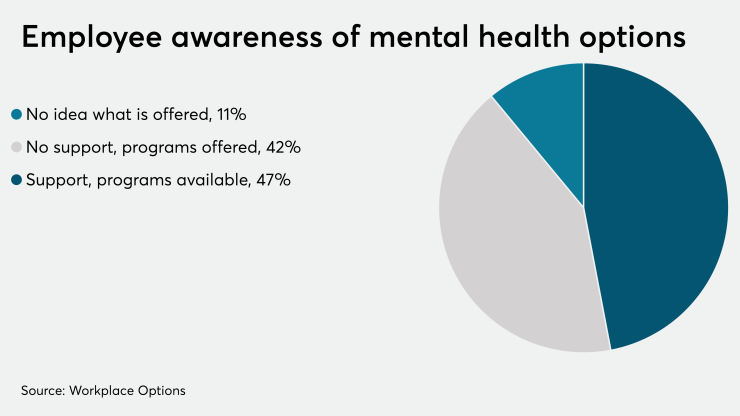Employees clocking into an El Paso, Texas, Walmart on a Saturday morning in August didn’t know their workplace was about to become a crime scene with 22 victims. With stories like this plaguing the news, it’s imperative HR is ready to help workers cope with the aftermath of tragedy, experts say.
“The sad thing is it’s becoming the new norm, and I do believe being prepared should be part of corporate culture,” says Gil Manzano, senior vice president of client partnerships at ACI Specialty Benefits.
There have been 270 mass shootings in the U.S. this year alone, according to the Gun Violence Archive, a non-profit organization that collects data on gun violence from law enforcement, media, government and commercial sources. Although the majority of these incidents happen outside of the workplace, Manzano warns the aftermath of violence follows people to the office, even if they weren’t victims themselves. Being involved in or even hearing about gun violence can spur depression and anxiety in employees, which costs the U.S. economy $1 trillion per year in lost productivity, according to the World Health Organization.
“Lost productivity is lost dollars, and that hits the bottom line,” Manzano says. “As HR, it’s in our best interests to help people cope with the aftermath of a traumatic event and get back to a sense of normalcy.”
Employee assistance programs are the best way to help employees dealing with depression following a traumatic event, Manzano says. He recommends including licensed mental health professionals who’ll visit the office to talk to employees.
“When these things happen we have to let employees process it,” he says.
Tim Mutrie, senior vice president of marketing for ACI Specialty Benefits, urges HR to use discretion when choosing the appropriate time to send mental health professionals to the workplace. Two years ago, one of ACI’s Florida-based clients experienced a workplace shooting; an employee killed two managers and himself, after being laid off.
“Their office was literally a crime scene, so it didn’t make sense to deploy mental health professionals that day,” Mutrie says. “It was better to let law enforcement do their job and wait till the next day to help everyone process what happened.”
Lisa Murfield, HR manager of Tampa, Florida-based law firm Hill Ward Henderson, says employers should look at tragic events as an opportunity to gain employee loyalty. She knows first-hand how much an employer’s response to worker trauma influences a company’s image.
When Murfield’s son committed suicide, his employer, Cabella’s, repeatedly checked in with her and her husband to express their condolences and offer help with their son’s benefits. Her own employer wasn’t as understanding; she was laid off a week after the funeral.
“They said they were originally going to do it the day of his funeral, but thought it was kinder to wait a week,” she says. “I was still at the height of my pain.”
This experience inspired Murfield and her husband to pen a book — titled “The ROI on Compassion” — about how employers should respond to employees dealing with depressing life events. As the book’s title suggests, she believes the most effective strategy HR can utilize in these situations is compassion.
“Compassion isn’t just a warm and fuzzy skill — it’s a power strategy for employers that benefits employees,” Murfield says. “All your employees are watching, and they want to know their employer cares and appreciates what they do.”
Murfield’s says her niece works for a company that displayed incredible compassion in the aftermath of a mass shooting in 2017 at the Route 91 Harvest Music Festival in Las Vegas. Her niece’s coworker was wounded during the attack and taken to a Las Vegas hospital. The president of the company flew out to visit this employee during her hospital stay, even though he lives in Japan.
“He came and told her not to worry about anything, HR would take care of everything and her job would be waiting for her after she recovered,” Murfield says. “What do you think her loyalty is to that organization?”
While that situation is ideal, Murfield says a simple and effective way to show employees compassion is to have HR call and check in periodically. She says it’s also important for HR to inform the employee of company benefits that can help.
“People aren’t thinking of health and life insurance during tragedy,” Murfield says. “Making the process easy for employees will make them feel like the company cares.”
Given the frequency of mass shootings, Murfield says employers need to look out for their survivors. Although the specific incident an employee lived through is over, trauma can resurface when another one makes headlines.
“Whenever there’s a shooting on the news, employees relive that experience,” Murfield says. “You need to talk to those employees and make sure they’re ok, and point them in the direction of any mental health benefits they can use.”






